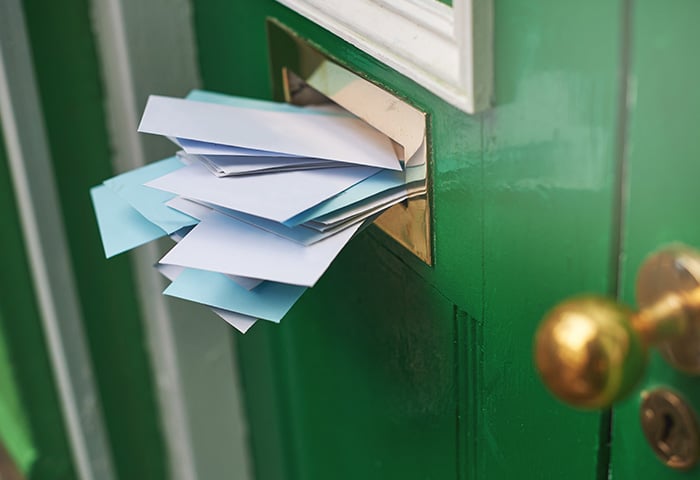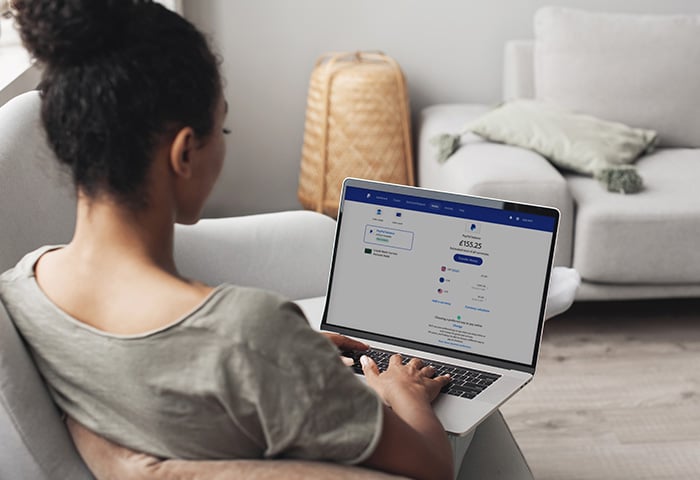What is a cryptocurrency wallet?
A cryptocurrency wallet is a storage method for holding cryptocurrency. Crypto wallets have the ability to send and receive money and record transactions. They can be physical devices, software, or even paper. Store crypto in a wallet rather than on a crypto exchange (like Robinhood) to ensure your digital currency remains yours and untampered with.
What is a digital wallet?
Digital wallets are software-based cryptocurrency storage tools. They represent most types of cryptocurrency wallets, including online, mobile, and desktop wallets. Not all cryptocurrency wallets are digital — some people use paper wallets to store their digital money.
Where do you store cryptocurrency?
To store your cryptocurrency, you need a wallet that supports the digital money you own or want to buy. Some coin wallets support only one cryptocurrency, while others are multi-currency and support hundreds of different cryptore might not be a wallet for all cryptocoins, but there are several wallets that cover all the coins you’d want to use.
The world of crypto is constantly changing, meaning some of this information might be outdated by the time you read this. Bitcoin safety depends on the wallet and crypto you’re using. Do your research before jumping in, and don’t take this article as investment or financial advice.
Which is the best cryptocurrency wallet?
The best wallet for cryptocurrency depends on your specific needs. And since crypto is always evolving, the answers can vary considerably from one month to the next. Being crypto-savvy means staying abreast of all the news and updates around digital currency.
Many of the so-called “best crypto wallets” are actually malware. Wallet software should only be downloaded from trusted or recommended sources. Learn how to check if a cryptowallet is legit before using one.
There’s only one way to start down the path toward becoming an expert about digital currency, and that’s to choose the best digital wallet.
Below is a list of some of the best and most popular digital wallets available, along with our assessments across a range of security and functionality factors.
| |
Ease of
use
|
Security
level
|
Portability
|
Anonymity
|
Coins
supported
|
|
Blockchain (Software)
|
Good
|
Okay
|
Good
|
Poor
|
7
|
|
Coinbase (Software)
|
Good
|
Good
|
Okay
|
Okay
|
8
|
|
Coinomi (Software)
|
Good
|
Good
|
Good
|
Good
|
1700+
|
|
Trezor (Hardware)
|
Good
|
Good
|
Good
|
Good
|
1500+
|
|
Ledger Nano X
(Hardware)
|
Good
|
Good
|
Good
|
Good
|
1100+
|
|
Electrum (Software)
|
Good
|
Okay
|
Good
|
Okay
|
1
|
|
Exodus (Software)
|
Good
|
Good
|
Good
|
Good
|
126
|
|
Jaxx (Software)
|
Okay
|
Okay
|
Good
|
Okay
|
90
|
|
Atomic Wallet
(Software)
|
Okay
|
Okay
|
Good
|
Good
|
300+
|
|
Mycelium (Software)
|
Okay
|
Good
|
Okay
|
Okay
|
1
|
|
Trust Wallet
|
Okay
|
Good
|
Good
|
Okay
|
1600+
|
The table above should give you an idea of where to start in terms of which Bitcoin wallet to use. But this information is not exhaustive, so use it only as a starting point.
Choose a software wallet, research it, and test it by trading small amounts of digital currency. With time and practice, you can find the best cryptocurrency wallet for your particular needs.
How do cryptocurrency wallets work?
A cryptocurrency wallet stores a public and private key. When you send money to the wallet’s public key, it appears on the blockchain: a ledger of all transactions for that crypto. Then, you use the private key to access money in that wallet.
Physical wallets aren’t actually devices “full of Bitcoin.” A cryptocurrency wallet serves as a security mechanism for the private key. It’s like you’re holding the private key in your hand, and the record on the blockchain tells you how much cryptocurrency that private key represents.
 A cryptowallet’s public key is used when sending money to the wallet, while the private key is used by the wallet’s owner to access the stored cryptocurrency.
A cryptowallet’s public key is used when sending money to the wallet, while the private key is used by the wallet’s owner to access the stored cryptocurrency.
Where does cryptocurrency exist?
Cryptocurrency exists on the ledger of transactions known as the blockchain. To facilitate cryptocurrency transactions, you need a public key, which is like a bank account number. But you need a private key to access the digital money in the account. Think of the private key as a combined username and password.
Both the private and public keys look like randomly-generated strings of characters, but they’re mathematically linked to each other — though only in one direction. You can use math to figure out the public key from the private one, but not the other way around.
Multi-signature wallets
A multisig wallet requires more than one private key for access. These wallets for cryptocurrency add an extra layer of security in that a person who finds a paper wallet doesn’t automatically have access to all the money inside. That way, your fortunes aren’t tied to a single piece of paper.
Multisig wallets may be more appropriate for businesses, where responsibility for a group’s money is shared among members. While the promise of greater security is enticing, multisig wallets may be too advanced for average users. Getting too overcautious about a failsafe may only introduce more problems in the process.
Are cryptocurrency wallets anonymous?
Cryptocurrency wallets are not anonymous. They give you a pseudonym in the form of the public key. This public key’s activity can be tracked, and a trade in conventional currency links that public key (and all of its activity) back to you.
Even if you refuse to cash out in US dollars, the activity on the wallet can be traced back to you. You still have a digital identity with crypto.
Some wallets have mechanisms to make you anonymous, such as a public key that changes with every transaction, extra data encryption, and VPNs for every transaction. You also don’t need to provide any personal information when using some wallets.
Still, full anonymity is virtually impossible. You’ll eventually enter a transaction that requires personal details, whether it’s your personal bank account number or something else.
Different cryptocurrency wallets
Security and utility are the two primary considerations when choosing a cryptowallet. Pick a wallet with the level of security you need that also suits your lifestyle and digital habits.
Choosing the right wallet means ensuring that only you have easy access to your crypto. Pick the wrong wallet, and you risk getting hacked or accidentally deleting all your money. And make sure your wallet supports the coin(s) you want to trade.
 Hot wallets vs. cold wallets
Hot wallets vs. cold wallets
Hot wallets are online and connected to the internet, while cold wallets store your coins offline. Choose a hot wallet or cold wallet based on security and how often you plan to make cryptocurrency transactions. Hot wallets are easy to use daily — but that makes them riskier. Cold wallets are offline, so they're better for keeping larger sums safe.
 Online wallets
Online wallets
With an online wallet, you can access your crypto through the internet. These wallets are better for making small trades — don’t use an online wallet to trade or move large sums. Online wallets can only be hot, and are ideal for pairing with a longer-term storage solution.
If, say, you’d like to buy a small portion of Ethereum and want to keep it safe, you can buy with an online wallet and then move your crypto to a more secure cold wallet. Don’t keep too much money in the online wallet for too long, as it’s vulnerable to attacks on your device as well as attacks on the online service.
Explore the best privacy apps for Android and best iPhone security apps to further enhance your mobile security.
 Pros:
Pros:
-
You don’t need to buy an expensive piece of physical media.
-
The easiest way to trade.
-
You can set up automatic transactions.
 Cons:
Cons:
-
Always connected and susceptible to dangerous hackers and malware.
-
Losing the device or uninstalling the program can lock you out of the wallet.
-
The least secure type of cryptowallet.
 Mobile wallets
Mobile wallets
A mobile wallet works like Apple Pay or Google Pay. You can make trades with just a few taps in your cryptocurrency wallet app. You’re leaving your private key exposed to the internet, but at least it’s tied to only one device, reducing the chances of getting your private key stolen.
A cryptocurrency wallet app can be used to make payments in stores — though support isn’t widespread, making this a limited benefit of a software wallet on the phone. Additionally, transactions on public Wi-Fi are a huge risk. Avoid them if you want full Android app safety. Use mobile data if you must, but a private, secure Wi-Fi connection is ideal.
 Pros:
Pros:
-
Your money is always with you.
-
Easiest way to make transactions and shop payments .
-
Slightly more secure than an online wallet.
 Cons:
Cons:
-
Your private key is just as exposed as with an online wallet.
-
Losing or damaging your phone may lock you out of the wallet forever.
-
Trading on public Wi-Fi increases risk.
 Desktop wallets
Desktop wallets
A desktop wallet is a software wallet primarily used at home on a private connection. This already makes them more secure than mobile wallets. Likewise, a cold desktop wallet is generally less likely to get stolen than a cold mobile wallet.
Most desktop wallets risk exposure when connected to the internet. But some wallets like Exodus come with robust security features, like encryption. A VPN can increase your security even further. Desktop wallets are good choices for personal cryptocurrency wallets.
 Pros:
Pros:
-
An internal hard drive means reliable data storage.
-
Trading at home on a private connection is more secure than in public.
-
Works well as a cold wallet.
 Cons:
Cons:
 Paper wallets
Paper wallets
Paper wallets are the most secure crypto wallet. While an online wallet always carries some risk of exposure, the information on a paper wallet is limited to those who can physically look at it. Storing your paper wallet in a safe place and disguising the key makes it virtually impossible for anyone to access your crypto.
But other problems may arise, such as forgetting where you put your paper wallet or fading ink on paper. And if your system was vulnerable when you were generating the key, then the key might remain in your cache and accessible to others. Paper wallets require a lot of care.
 Pros:
Pros:
-
The most secure type of wallet.
-
Convenient for others sending money to you.
-
Secure against hackers and viruses (provided you generated the key safely).
-
Free.
 Cons:
Cons:
-
Recovering a key from a lost or damaged wallet will be impossible.
-
Can be hard to send money from.
-
Proper security requires that you generate a new wallet every time you send money.
 Hardware wallets
Hardware wallets
Hardware wallets address many of the concerns associated with paper wallets. They’re made to resist the elements and remain accessible to you and you alone. Hardware wallets use digital storage solutions designed to survive for decades.
The information on a hardware wallet is never exposed to the internet, making them great cold options. It’s essential to understand the difference between hot wallets and cold wallets when exploring crypto storage solutions
The biggest concern with hardware wallets is the risk of locking yourself out. Thankfully, hardware wallets now offer multiple accessibility options to minimize that risk. Wallets like the Trezor and the Ledger Nano prompt you with a string of 20 keywords in case you forget your PIN, for example.
 Pros:
Pros:
-
Can store multiple cryptocurrencies on one device.
-
Multiple points of entry to increase accessibility while keeping others out.
-
More resistant to the elements than ink and paper.
 Cons:
Cons:
Before you make a decision, think about how you want to use your cryptowallet. It’s not just about getting the most secure one. It’s about getting the most secure one that suits your needs.
How to secure a crypto wallet
As described above, some wallets are more secure than others. Still, you can learn how to secure your crypto wallet, whatever kind it is.
Store most of your crypto cold
Send large sums to offline wallets and keep them there. Never keep a lot of money online. The most secure crypto wallet is an offline one.
Regularly update software
Hackers can exploit vulnerabilities in older software to break into your devices. This does not just apply to the crypto software — it applies to all of your software. Install patches and updates whenever they’re available to keep all your data secure, including your cryptocurrency.
Use 2FA and multisig
Two-factor authentication (2FA) is a must with crypto. And set up multisig transactions if you’re looking for a really secure wallet for cryptocurrency.
Your digital wallet should be hard to access, but not so hard that you lock yourself out. Everyone forgets a password once in a while. And crypto wallets don’t come with a “forgot my password” link, so you make sure you create a strong password that you won’t forget.
Protect your devices and email
Securing your devices is the best way to secure your digital currency. One weak link can compromise the whole system, so consider both mobile and desktop defense.
Prevent hackers from accessing an email account connected to your crypto wallet or remotely installing a virus on your Android. Malware scanners can detect intrusions like the CryptoShuffler Trojan and prevent your details from being stolen.
You might think that moving your money to an offline wallet is all the security you need. But if your computer was compromised when you set up your Bitcoin wallet, all your efforts may be for naught.
 Secure your cryptowallet with 2FA, cold storage, and robust cybersecurity.
Secure your cryptowallet with 2FA, cold storage, and robust cybersecurity.
Keep your device secure with AVG AntiVirus FREE
Crypto safety is only as good as your device’s safety. You may have bought a cold wallet, and you may think that all that money is accessible only to you. But what if your PC wasn’t secure when you generated your crypto keys?
AVG AntiVirus FREE prevents malware from making it onto your computer in the first place. Intelligent threat protection keeps you safe from new threats as they emerge. Dangerous sites are blocked, and personal information stays protected. Make sure your private key doesn’t fall into the wrong hands.

 A cryptowallet’s public key is used when sending money to the wallet, while the private key is used by the wallet’s owner to access the stored cryptocurrency.
A cryptowallet’s public key is used when sending money to the wallet, while the private key is used by the wallet’s owner to access the stored cryptocurrency. Secure your cryptowallet with 2FA, cold storage, and robust cybersecurity.
Secure your cryptowallet with 2FA, cold storage, and robust cybersecurity.













